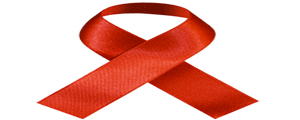
ZIMBABWE has been listed among four countries in Africa that still criminalise HIV and Aids with experts at the UNAids International Conference suggesting that the prosecutions perpetuates stigma.
BY DESMOND CHINGARANDE, AMSTERDAM, NETHERLANDS
HIV and Aids international policy analyst Sally Cameron said Zimbabwe had recorded 15 cases of sexual-related offences involving people living with HIV with their being rights violated.
Cameron said Zimbabwe uses the Criminal Act, of deliberately transmission of HIV and Aids, but there is a thin line which separates the intention to have sex and to infect.
“There are some countries which still criminalise HIV and Aids, Belarus is above with a recorded 128 reported cases and most of them are convicted before the courts despite the lack of evidence. In Africa, Zimbabwe has recorded 15 such cases,” Cameron said.
Other countries, which still have laws that criminalise HIV and Aids are Nigeria, Kenya, Benin and Honduras.
Stakeholders said such laws do not help the situation, but perpetuate the stigma through the coverage of such prosecutions in the media.
Cameron said some countries had applied harsher penalties of up to 30 and 70 years imprisonment for HIV and Aids-related cases and all accused persons were tried while languishing in jail.
- Chamisa under fire over US$120K donation
- Mavhunga puts DeMbare into Chibuku quarterfinals
- Pension funds bet on Cabora Bassa oilfields
- Councils defy govt fire tender directive
Keep Reading
The HIV policy expert said most of these offences reported in Zimbabwe and other countries are initiated by estranged partners.
“The fight for the rights of people living with the virus will continue to be violated as long there are laws to prosecute people who infect others,” Cameron said.
“In most Western countries, they have laws that prosecute people for spitting, biting scratching and bleeding and they can be charged for exposing people to such diseases.”
Canadian HIV Legal Network expert Richard Elliot said prosecutors and court interpreters must be trained general provisions of explaining such laws without offending the accused person who is living with HIV and Aids.
“Some prosecutors and interpreters describes HIV offences in court as attempted murder, aggravated sexual assault, criminal negligence and causing bodily harm. We should not trivialise the criminal law, particularly sexual by criminally speculative or negligible risks,” Elliot said.
Andrea Krusi of Women Living with HIV and Aids said most laws ignored the fact that intention to have sex and intention to transmit HIV was an individual decision which cannot be proved by anyone. She said laws were crafted in a way to force people to disclose their status before sex.











